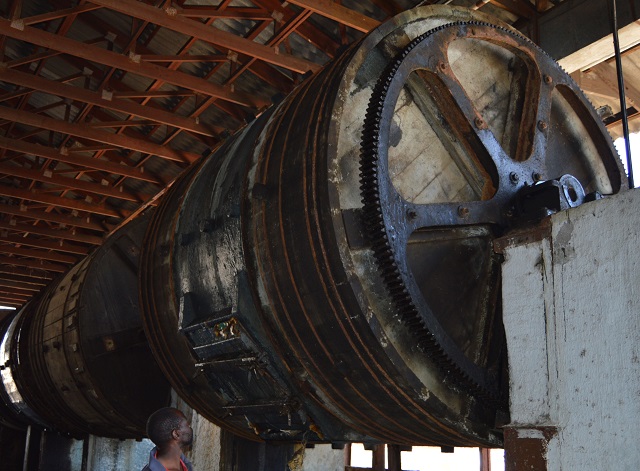
The Sunday News

 Leather liming and tannery drums at Wet Blue Leather Tanning Industries at Donnington Industrial area at work
Leather liming and tannery drums at Wet Blue Leather Tanning Industries at Donnington Industrial area at workDumisani Nsingo, Senior Business Reporter
THE slump in international prices of leather has delayed resumption of operations at one of the country’s biggest tanneries, Wet Blue Industries.
Wet Blue’s judicial manager Mr Crispen Mwete said high operational costs against continuous falling international prices of wet blue were curtailing the resumption of production at the Bulawayo-based company. The company had set sights on resuming operations in August after stopping production in October last year.
“We are facing a challenge in that the market for wet blue is getting worse with international price now at $0,95 cents. In actual fact it continues to go down. We know it has been seasonal but this time the slump has been persistent. The hide costs us between $0,35 to $0,55 cents per kilogramme while processing it into wet blue costs us a $1. The hides and chemicals are there but we have been priced out of market for us to be competitive. We would need the hides to be $0.20 at most,” said Mr Mwete.
He said the company was pinning its hopes on the rise of international prices to resume operations and marketing its products.
“We are hoping that the prices go up to ensure that we reach a breakeven point whereby it is just above a $1. At least we would be able to sustain our employees because labour is one of the costs. CSC (Cold Storage Company) has promised to give us hides and it is also seeking a market for us. We also have a client in Gwanda who is holding onto a large stockpile of hides and has promised to supply us as soon as we get the market,” said Mr Mwete.
The fall of international prices has had ripple effects on the company’s imminent export deals with a South African company, African Hide Trading and an Italian company. Last year, the company processed 540 000 raw hides into wet blue.
The company was placed under provisional judicial management in September 2014 after business went down following shortage of inputs after the major supplier, CSC started experiencing problems. This led to the closure of the company in 2011.
“The issue of raising capital for Wet Blue Industries is a challenge because there is nothing to dispose of except machinery and if we dispose that the company will close shop,” said Mr Mwete.
Zimbabwe has eight tanneries operating at capacities of between 20 and 50 percent. Footwear manufacturing companies are 49 and have operational capacities of between 25 to 40.
Over the past 20 years, more players in the leather sector have been emerging mainly as Small to Medium Enterprises (SMEs).
However, experts have said there was a need for the SMEs to be encouraged to participate in the sector’s activities and meetings so that they too could be aware of developments in the sector and also be in a position to work well with the already established companies.
The leather sector has suffered great losses over the years. Once a vibrant sector, the leather sector is facing numerous challenges, which are making it difficult for the companies to remain operational and competitive. The sector employs around 3 000 from a peak of 12 000 people in the 1990s.
The farmers, suppliers of the cowhides and skins are also failing to maintain their herd due to what they believe is the low price the beasts are fetching on the market. This has led to the shortage of the raw material as well as its low quality.
@DNsingo



